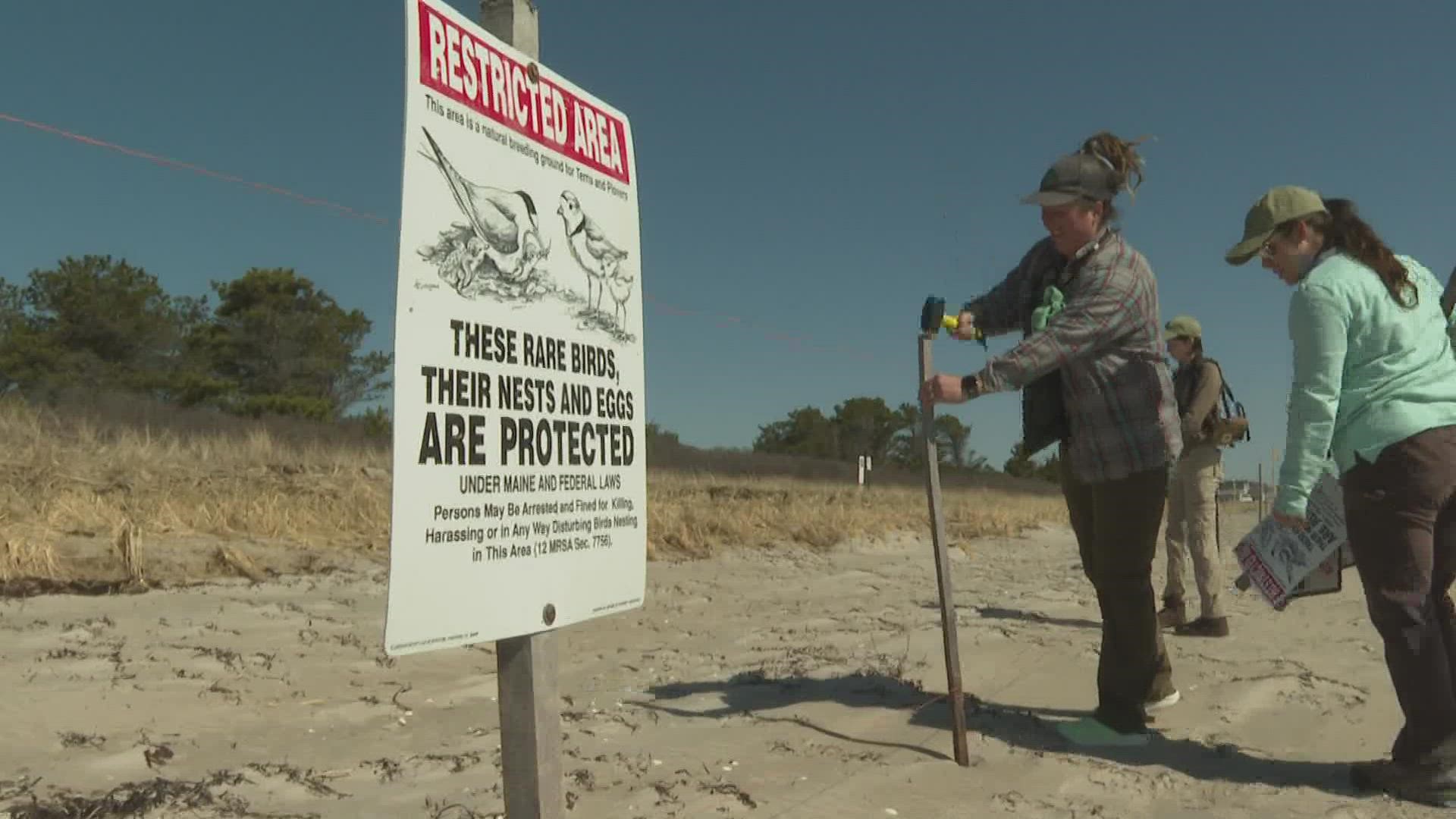OGUNQUIT, Maine — Within Ogunquit’s natural beauty, one seasonal visitor can fly under the radar: the piping plover.
Wildlife biologist Laura Minich Zitske, a self-proclaimed "plover lover," patrols Maine's beaches as many as three times a week as her team with Maine Audubon works to protect the tiny bird that migrate north for the summer.
"Birds that we’re seeing here have come up from the Bahamas, from the Carolinas, and southern United States," Zitske explained as we met her and four of her Audubon peers at Ogunquit Beach on Friday.
The piping plover is considered endangered by the state of Maine.
In 2021, 125 nesting pairs were recorded in the state, which Zitske said is a record.
Some of this year's visitors had already landed in Ogunquit when we visited.
Males typically arrive first to "scratch" nests in sand dunes, hoping a female will land and find it suitable for laying eggs.
Maine Audubon surveys public beaches and hammers tall wooden stakes, connected by twine, into the ground to create visible barriers to warn beachgoers to keep their distance from the dunes.
The town of Ogunquit is so invested in keeping the birds safe that they designate a lead plover monitor among their ranks. Lt. Neal Pawlik has been in that role for six months.
"We’re here to protect all the residents, visitors, and business owners of Ogunquit, and these are some of our residents as well," he said of the plovers.
He enforces the no-dog policy and watches for signs of nests. With nesting sites stretching across many of Maine’s beaches, the plovers need help beyond Pawlik’s jurisdiction.
One doesn't need to travel far to understand the situation.
Looking north along Ogunquit Beach, no development has been allowed to take hold. Parking lots are a fair distance from the beach, wildlife explores the marshes, and dunes lead to publicly accessible sand and water. Across an imaginary line in the sand, in the town of Wells, a row of luxurious homes stretches to the horizon.
Pawlik and the Audubon members explained that the homeowners in Wells successfully gained property rights down to the low-tide water mark in the sand. Laura Williams, a wildlife biologist on the team, said they have to go door-to-door, asking permission to put up stakes to protect plover habitats they find on each property.
"We’ll work with those landowners and try to come to an agreement of what we can fence off and how to protect these birds but still have the landowners have access," Williams said. She said anyone who damages a plover habitat could face punishment. In fact, according to the Maine Department of Inland Fisheries & Wildlife, "The harassment or death of an endangered or threatened species can lead to state and federal charges resulting in fines of up to $25,000 and six months imprisonment."
Even Ogunquit’s agreeable beaches could soon pose an issue for the plovers, though. Within weeks, Pawlik said, the town's population of 1,200 residents will balloon to 50,000 for the summer. But Zitske is optimistic, and offers beachgoers an opportunity.
"What it takes is just awareness, giving the birds space, letting them do their things," she said. "And when you do give the birds space, that’s when you get the opportunity to watch a piping plover parent bring its tiny, little, fluffy chicks down to the water’s edge and forage."
She hopes some plover love can help the species regain its prominence.

